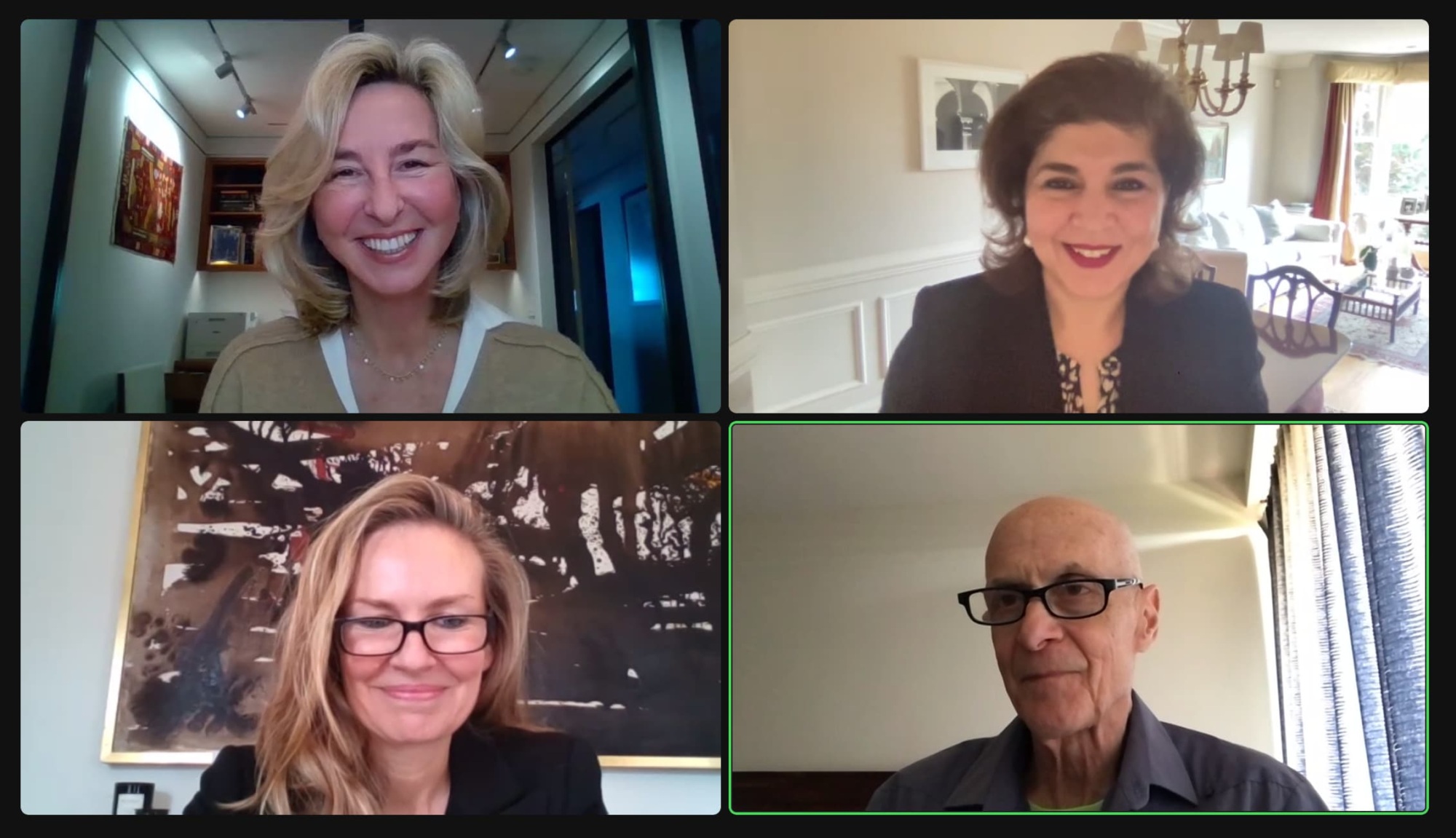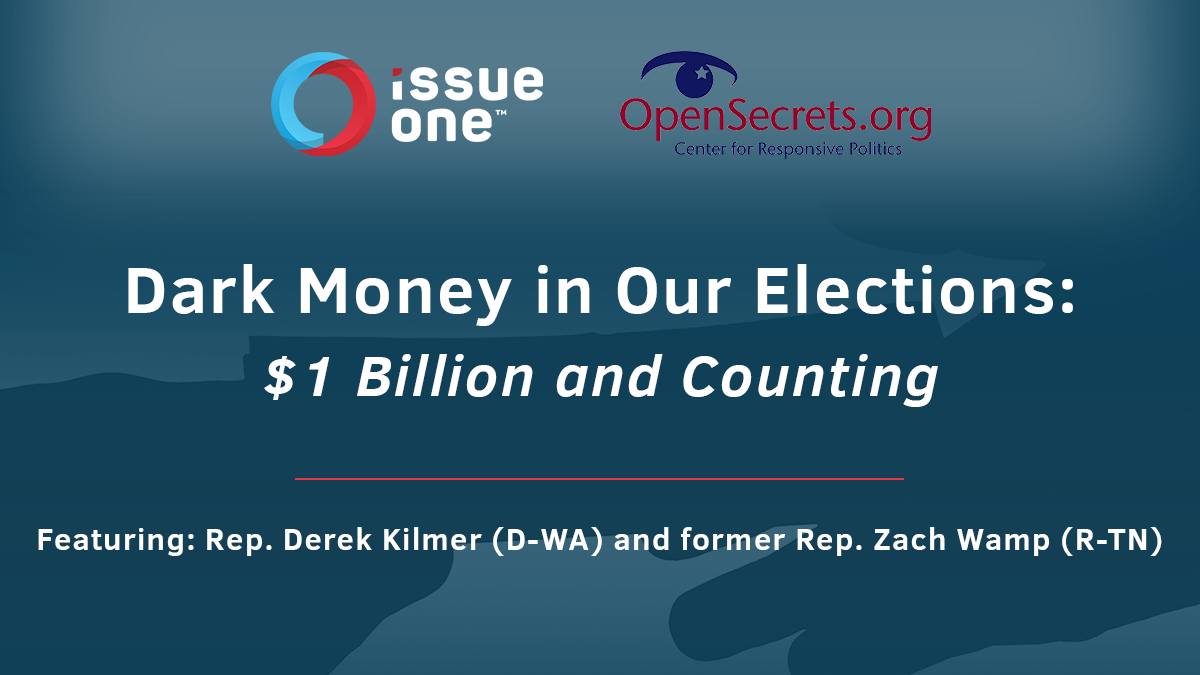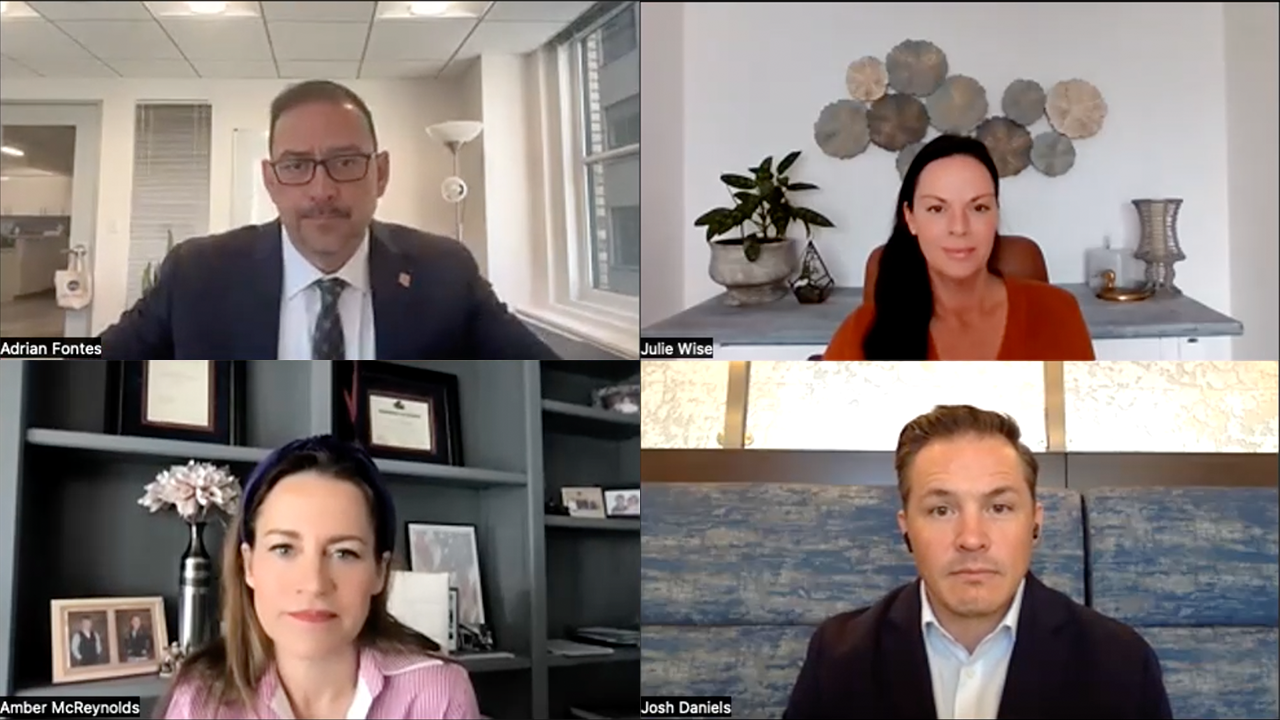
Event Recaps
Experts discuss how social media’s design radicalizes its users
Social media platforms are designed to maximize our attention, suck us in, and keep us hooked. They do this by keeping the public in the dark about how algorithms elevate…
Event Recaps
Issue One and the Center for Responsive Politics hosted a press call today to discuss the dangers of secret spending as well as the commonsense, bipartisan solutions to bring more transparency to our elections.
Since the U.S. Supreme Court’s Citizens United decision in 2010 opened the floodgates for dark money spending, these groups — which do not disclose their donors — have reported $996 million in election-related expenditures, according to the Center for Responsive Politics, including $33 million, and counting, ahead of the 2020 election.
Today’s press call featured Rep. Derek Kilmer (D-WA), Issue One ReFormers Caucus Co-Chair Rep. Zach Wamp (R-TN), Issue One Research Director Michael Beckel, and Center for Responsive Politics Nonprofit and FARA Researcher Anna Massoglia.
“Democracy is strongest when we have open and transparent elections,” said Kilmer, who has sponsored two pro-transparency bills that have been endorsed by Issue One — the Honest Ads Act (H.R. 2592) and the Political Accountability and Transparency Act (H.R. 679). “Dark money spending is disruptive to our democracy. It has the potential to overwhelm the voices of the citizens our government is meant to serve.”
Wamp pointed out that while many conservatives embraced dark money faster than liberals after Citizens United, liberal dark money groups actually outspent conservative ones in 2018 and are on track to do so again this year.
Wamp urged Republicans and Democrats to work together on the issue. “We’ve got to do everything we can to shine a light on all of these abuses. Nobody thinks there are any rules. It’s a bipartisan challenge to solve this problem,” he said.
“Secret spending is dangerous because it corrodes people’s trust in our political system,” added Beckel. “No transparency means no accountability. Just about anyone could be pumping money into U.S. elections, including foreign nationals, foreign companies, or even foreign governments.”
Massoglia stressed that dark money is becoming harder to track, and she noted that the $1 billion figure is just a portion of all dark money spending because certain types of ad spending are not required to be reported to the Federal Election Commission and because dark money groups are increasingly giving money to super PACs to run ads, rather than airing ads themselves.
“Groups with significant sums from secret donors are spending to influence the outcomes of elections, leaving voters in the dark as they go to the polls,” she said. “It’s really important for people to have access to that information before elections, not years down the line, if ever.”
Watch the entire 30-minute call online here.
#Darkmoney spending will soon eclipse $1 billion since #CitizensUnited in 2010.
Today @IssueOneReform & @OpenSecretsDC discussed the danger of dark money, with special guest speakers @RepDerekKilmer (D-WA), @IOWamp (R-TN), @annalecta & me!
Watch here: https://t.co/Jr4m2aalfv pic.twitter.com/gw9GvOXouk
— Michael Beckel (@mjbeckel) September 9, 2020
Issue: Dark Money & Super PACs
Event Recaps
Social media platforms are designed to maximize our attention, suck us in, and keep us hooked. They do this by keeping the public in the dark about how algorithms elevate…
Event Recaps
On October 23rd, 2023 in Washington, D.C., Issue One held an event to kick off Safe Tech, Safe Kids — a campaign partnership led by Project Liberty in collaboration with Issue…
Event Recaps
Issue One convenes election officials for webinar on the impact of high election administrator turnover on 2024, as Faces of Democracy members testify before the Senate about threats to elections...
Yesterday, Issue One hosted a virtual event with current and former election officials providing further insights from our recent “High Cost of High Turnover” report, which revealed an alarming trend:…


